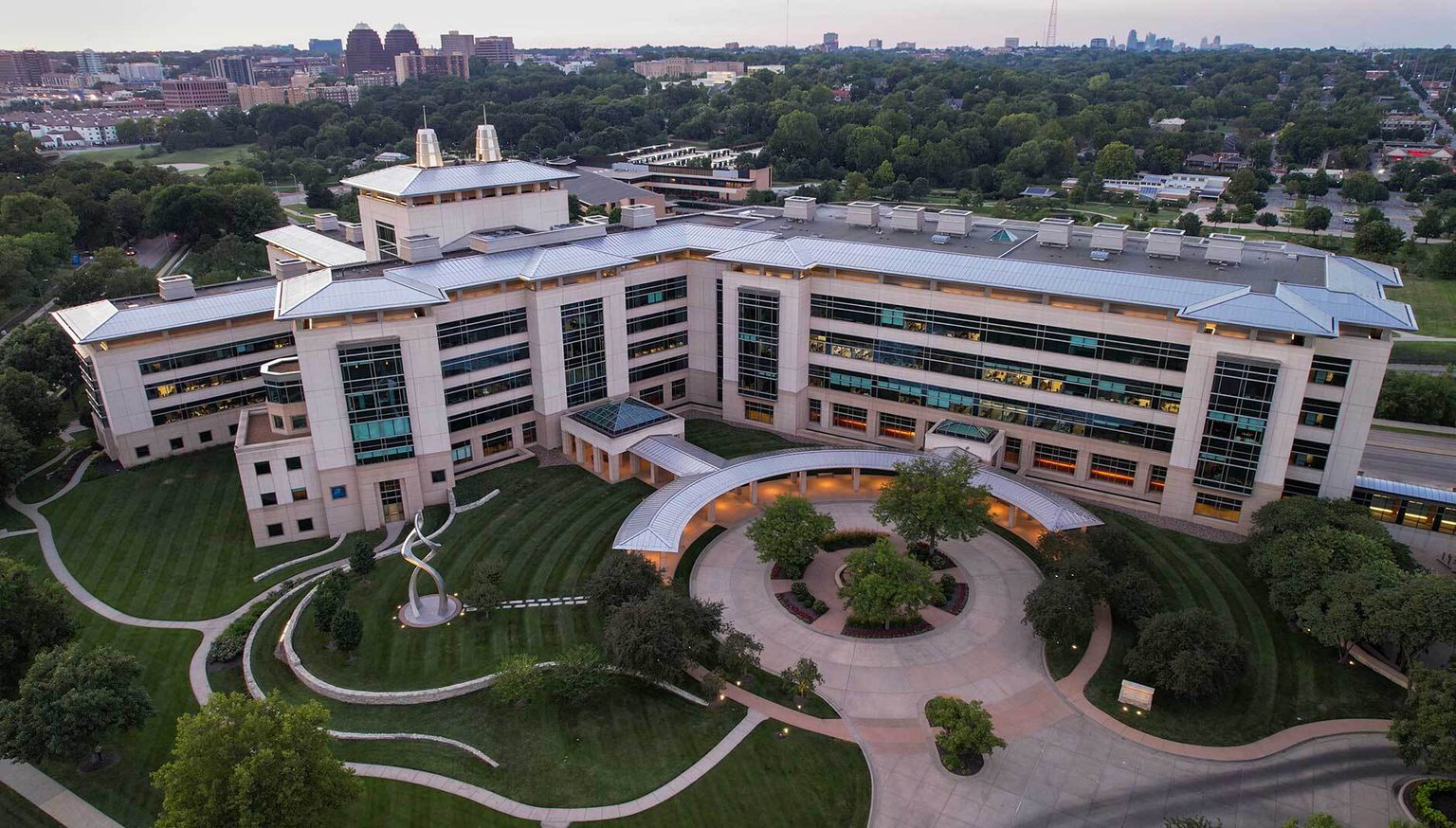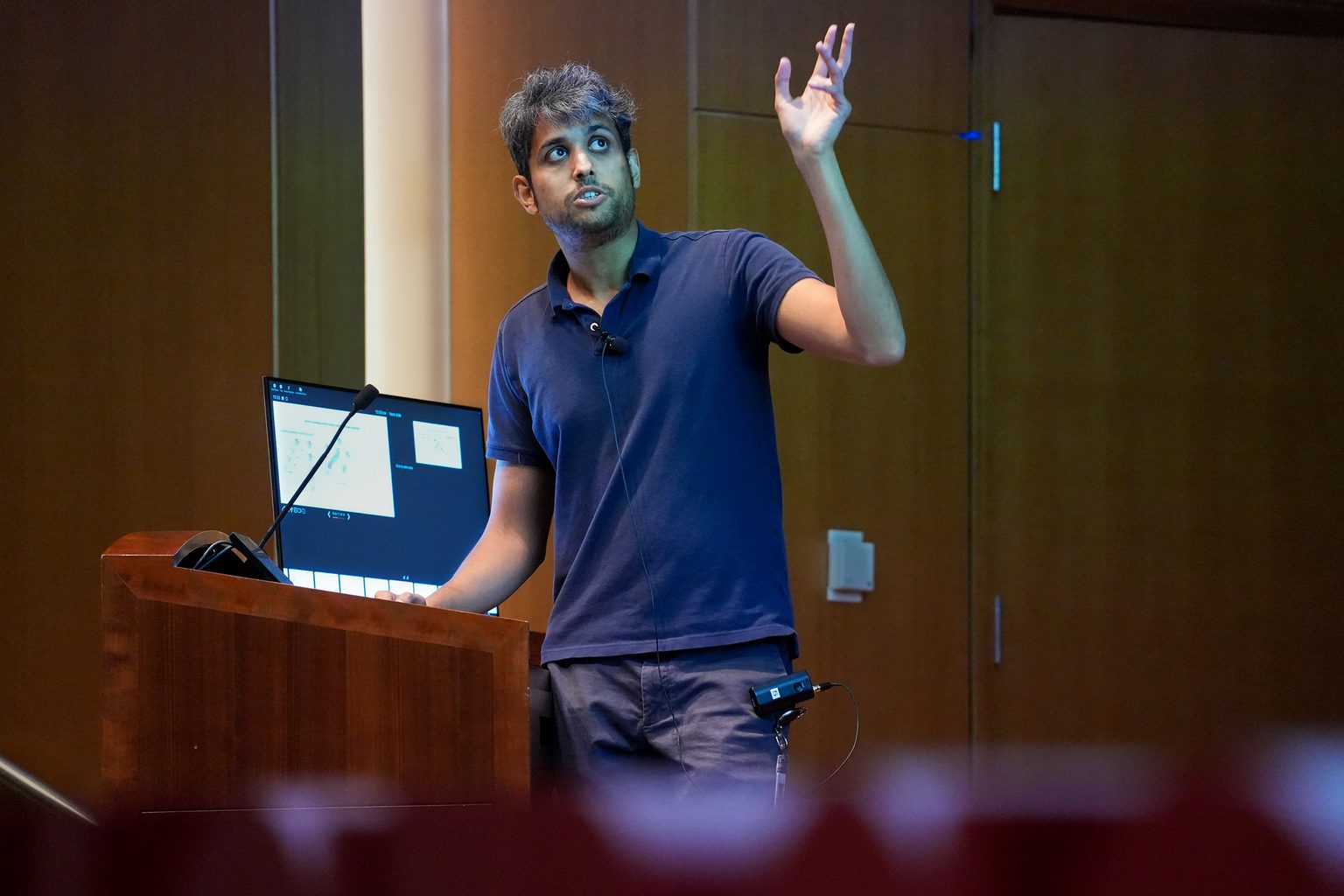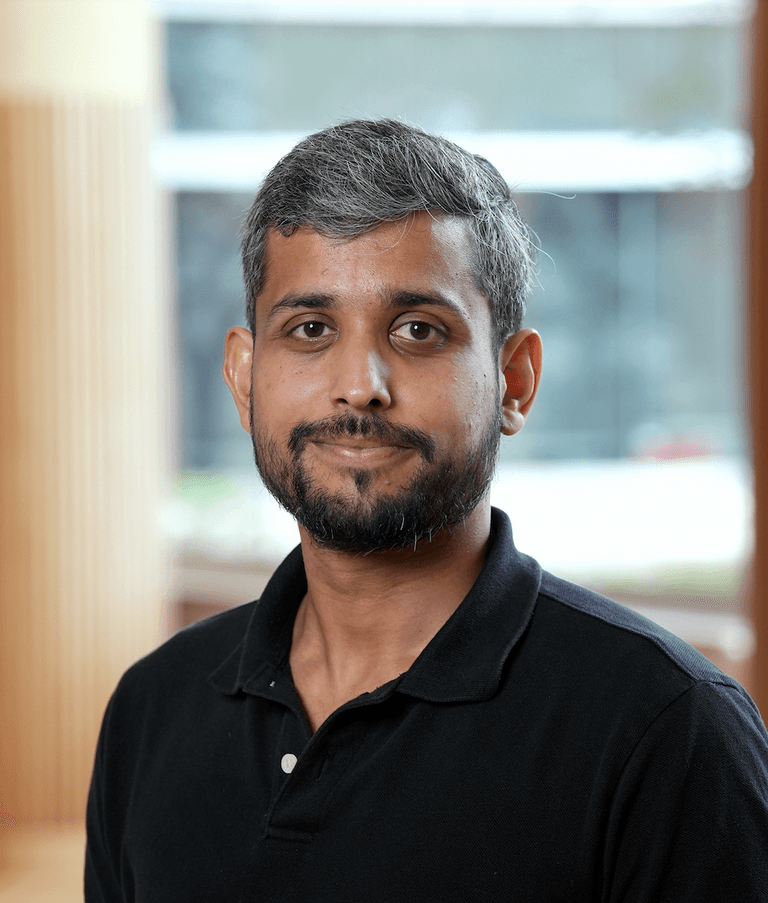News

18 December 2025
2025 in Review
Eleven key moments and achievements from the Stowers Graduate School in 2025
Read Article
The Graduate School of the Stowers Institute for Medical Research
News
Students working with Pillai can look forward to studying deep evolutionary biology paired with advanced protein biochemistry and artificial intelligence to investigate and explore these questions.
Stowers Assistant Investigator Arvind Pillai, Ph.D.
“I was taught that I am allowed to ask bold questions,” said Stowers Institute Assistant Investigator Arvind Pillai, Ph.D.. Reflecting on his own education, he credits his mentors including David Baker, Ph.D. at the University of Washington and Joseph Thorton, Ph.D. at the University of Chicago with offering the encouragement Pallai needed to explore the deepest questions that matter to him. This experience laid the foundation for his own career and his approach to mentoring his own students.
“My goal now,” said Pillai, “is to create a similarly positive environment for my students: one that supports creative self-expression, encourages them to pursue problems that matter to them personally, and gives them the tools and confidence to turn those ideas into real science.”

Pillai speaking at the Crossroads Research Conference in September 2025
Pillai is a biochemist and evolutionary biologist who joined the Institute in Fall 2025 as an Assistant Investigator. His research explores how new protein structures originate during evolution and how those principles can be harnessed to design future therapeutics. In establishing his lab, he plans to recruit and mentor a collaborative, multidisciplinary team of scientists passionate about tackling biology’s biggest mysteries.
“I enjoy working with committed, curious students who come from diverse disciplinary backgrounds,” said Pillai.

Arvind Pillai, Ph.D.
The small class sizes and limited teaching load for Stowers Graduate School faculty means that Pillai and other faculty have more flexibility in how they approach coursework. “I can be very intentional about how I design and refine a course,” Pillai said, “trying ideas, getting feedback, and iteratively improving the material in a way that would be much harder at a larger, more traditional university.”
Pillai’s long-term goal is to build molecular tools—such as programmable sensors or therapeutic delivery systems—that could one day help detect and treat conditions like cancer or Alzheimer’s disease. Students working with Pillai can look forward to studying deep evolutionary biology paired with advanced protein biochemistry and artificial intelligence to investigate and explore these questions.

“If you have initiative and enthusiasm,” said Pillai, “there’s a huge amount of technical and intellectual support at Stowers to take ambitious ideas as far as they can go.”
Lean more about the Pillai Lab here.
If you’re ready to pursue big questions in biology and learn alongside world-class scientists and mentors, applications for the Stowers Ph.D. program are now open. Apply here.
News

18 December 2025
Eleven key moments and achievements from the Stowers Graduate School in 2025
Read Article
News
24 November 2025
Students working with Pillai can look forward to studying deep evolutionary biology paired with advanced protein biochemistry and artificial intelligence to investigate and explore these questions.
Read Article
News
19 November 2025
Sankari believes the Stowers Graduate School is a place for emerging scientists to pursue their passions, contribute to discoveries, and achieve success.
Read Article
